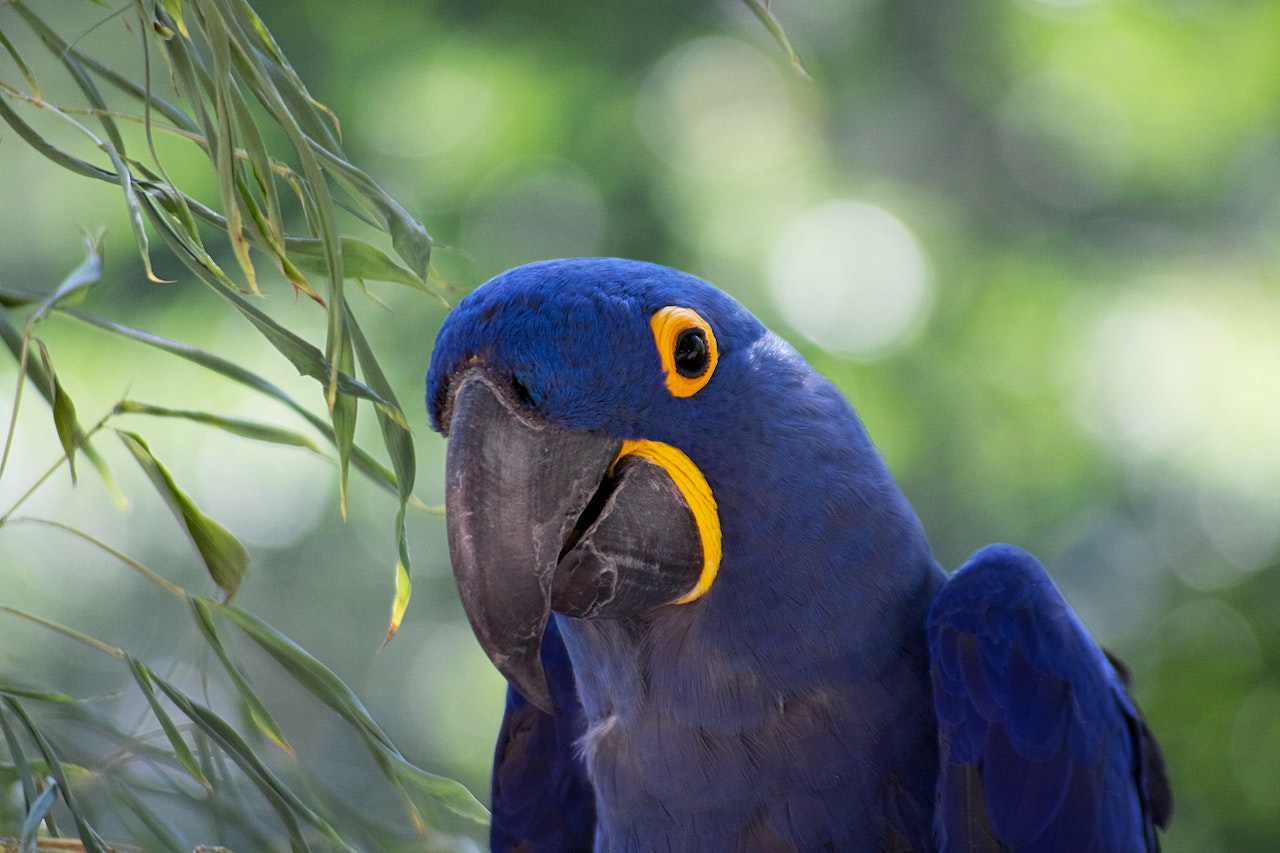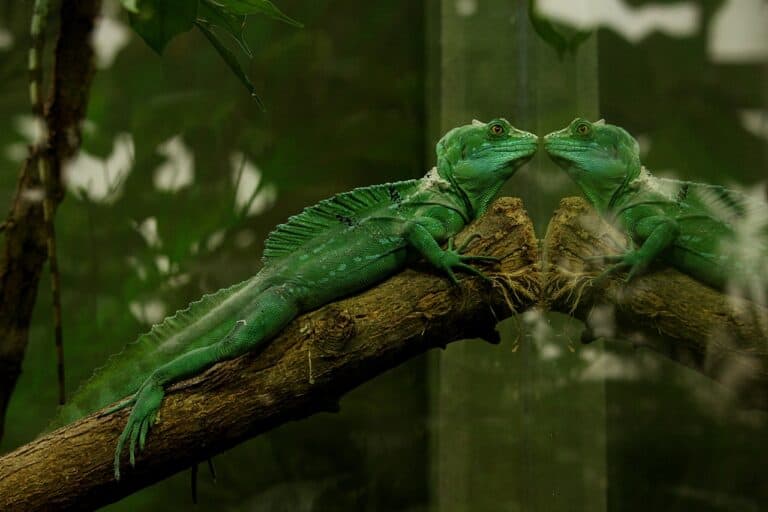Exposing the Truth: The Top 5 Exotic Pet Myths Debunked
Exotic pets have always fascinated humans with their unique characteristics and appearances.
However, there are several misconceptions surrounding these unconventional animal companions.
In this article, we will debunk the top five myths about exotic pets and provide valuable insights into the reality of owning them.
Let’s separate fact from fiction and discover the truth behind these fascinating creatures.
Key takeaways:
- Exotic pets are not inherently dangerous, but responsible care, training, and socialization are essential for their well-being.
- While some exotic pets have specific care requirements, with proper research and dedication, they can be rewarding companions.
- Not all exotic pets are illegal to own, but it’s crucial to research and comply with local laws and regulations.
- Owning an exotic pet is not limited to the wealthy; proper planning and budgeting can make it accessible to many enthusiasts.
- Exotic pets are capable of forming meaningful bonds with their human caregivers through trust-building and positive interaction.
Myth 1: Exotic pets are dangerous
One common misconception is that exotic pets are inherently dangerous.
While it’s true that some exotic species possess natural instincts that can be potentially harmful, it’s essential to understand that proper care, training, and socialization play a crucial role in shaping their behavior.
Responsible exotic pet owners take necessary precautions to ensure the safety of both their pets and those around them.
Myth 2: Exotic pets are difficult to care for
Another prevalent myth is that exotic pets are challenging to care for.
While it’s true that some exotic species have specific care requirements, proper research, preparation, and commitment can make the experience rewarding.
Just like any pet, exotic animals require proper nutrition, veterinary care, and appropriate environmental conditions.
With the right knowledge and dedication, providing for their needs can be a fulfilling and enjoyable experience.
2.1 Habitat and environmental needs
Exotic pets often require specific habitats and environmental conditions to thrive.
Understanding their natural habitat and replicating it as closely as possible within a domestic setting is crucial.
Temperature, humidity, lighting, and enclosure size are all essential factors to consider to ensure the well-being of the exotic pet.
2.2 Diet and nutrition
Proper nutrition is vital for the health of exotic pets.
Each species has unique dietary requirements, and it’s crucial to provide a balanced diet that meets their specific needs.
Some exotic pets might require specialized diets, such as insects, fruits, vegetables, or a combination of these.
Consulting with a veterinarian experienced in exotic pet care is essential to ensure the pet’s dietary needs are met.
Myth 3: Exotic pets are illegal
Contrary to popular belief, not all exotic pets are illegal to own.
While certain jurisdictions may have restrictions on owning specific species due to environmental concerns or public safety, many exotic pets are legal to keep with the appropriate permits and licenses.
It’s crucial for potential owners to research and adhere to local laws and regulations before acquiring an exotic pet.
3.1 Researching local regulations
Before considering an exotic pet, it’s essential to research local laws and regulations regarding pet ownership thoroughly.
This includes understanding any permits, licenses, or documentation required to own and care for the desired species legally.
Compliance with these regulations ensures the well-being of the pet and avoids legal complications for the owner.
Myth 4: Exotic pets are only for the wealthy
Some people believe that owning an exotic pet is a luxury reserved for the wealthy.
While it’s true that some exotic species can be expensive to purchase, there are various factors to consider when determining the cost of owning an exotic pet.
These include initial purchase price, ongoing care expenses, veterinary costs, habitat setup, and maintenance.
With proper planning and budgeting, owning an exotic pet can be within reach for many enthusiasts.
Myth 5: Exotic pets can’t bond with humans
There is a common misconception that exotic pets are unable to form meaningful bonds with their human caregivers.
However, many exotic species are capable of developing strong bonds and displaying affection towards their owners.
Building trust through positive reinforcement, social interaction, and regular care establishes a foundation for a deep and meaningful relationship with an exotic pet.
Myth 6: Exotic pets require a large amount of space
It is a common misconception that exotic pets, particularly larger species, require vast amounts of space.
While certain exotic animals may need larger enclosures or specific environmental conditions, many can adapt well to smaller living spaces when provided with proper enrichment and stimulation.
Myth 7: Exotic pets are prone to spreading diseases
There is a belief that exotic pets are more likely to carry and transmit diseases compared to traditional pets.
While it’s true that some exotic species can carry specific pathogens, proper hygiene practices, regular veterinary check-ups, and responsible pet ownership can greatly minimize the risk of disease transmission.
Myth 8: Exotic pets have short lifespans
Some people assume that exotic pets have shorter lifespans compared to traditional pets.
While it is true that certain exotic species may have shorter lifespans, many others have lifespans comparable to or even longer than common pets like dogs and cats.
Lifespan varies significantly among different exotic species, and it’s essential to research and understands the average lifespan of the specific animal you are considering as a pet.
Myth 9: Exotic pets are difficult to find proper care for when traveling
One misconception is that it is challenging to find suitable care for exotic pets when their owners need to travel.
However, there are professional pet sitters, specialized boarding facilities, and veterinary clinics experienced in caring for exotic animals.
With proper planning and communication, it is possible to ensure the well-being of your exotic pet while you are away.
Myth 10: Exotic pets are always high maintenance
Another myth is that all exotic pets require extensive care and maintenance.
While certain exotic species may have more complex care requirements, there are also many low-maintenance exotic pets available.
It is important to research and choose a species that aligns with your lifestyle, time availability, and commitment level.
Myth 11: Exotic pets cannot be trained
Contrary to popular belief, many exotic pets can be trained using positive reinforcement techniques.
From teaching basic commands to complex behaviors, training can strengthen the bond between the owner and the exotic pet while also providing mental stimulation and enrichment for the animal.
Myth 12: Exotic pets are all nocturnal
While some exotic pets are indeed nocturnal or more active during specific times of the day, not all exotic pets fit this description.
Many exotic species are diurnal (active during the day) or crepuscular (active during dawn and dusk).
It’s essential to consider the activity patterns of the specific species you are interested in to ensure it aligns with your lifestyle and expectations.
Conclusion
In conclusion, debunking myths about exotic pets is crucial for fostering a better understanding of these fascinating animals.
Exotic pets can make excellent companions when cared for responsibly and provided with the appropriate environment, nutrition, and socialization.
By dispelling misconceptions and acquiring accurate knowledge, potential exotic pet owners can make informed decisions and create fulfilling relationships with these unique creatures.
FAQs
Are exotic pets more dangerous than traditional pets?
Exotic pets, like any animal, have the potential to be dangerous if not properly cared for or handled.
Responsible ownership, training, and socialization are essential to minimize any risks.
Can I legally own an exotic pet in my area?
The legality of owning an exotic pet varies depending on your jurisdiction.
My advice is to get familiar with the local laws and regulations to determine the requirements and restrictions in your area.
Q3: Do exotic pets require specialized veterinary care?
Yes, exotic pets often require specialized veterinary care.
It’s crucial to find a veterinarian with experience in treating exotic species to ensure their health and well-being.
Q4: What are some affordable exotic pet options?
There are various affordable exotic pet options available, such as small reptiles, certain bird species, or small rodents.
Researching different species and their care requirements can help find a suitable and budget-friendly choice.
Q5: How can I bond with my exotic pet?
Building trust through positive reinforcement, spending quality time together, and providing proper care and attention are crucial to forming a strong bond with an exotic pet.
Patience and consistency are vital in establishing a meaningful connection.
Peter Stones is the founder of Exotic Pets Place, the leading online resource for exotic pet care information.
With over 10 years of hands-on exotic pet ownership experience, he is deeply passionate about sharing his expertise to help others properly care for their unusual pets.
When he's not writing extensively researched articles or connecting with fellow exotic pet enthusiasts worldwide, you can find Peter at home tending to his own beloved menagerie of exotic animals.






![Exotic Pet Youtubers The Top 8 to Follow [+ Links], someone watching youtube on a tablet](https://exoticpetsplace.com/wp-content/uploads/2023/06/Exotic-Pet-Youtubers-The-Top-8-to-Follow-Links-someone-watching-youtube-on-a-tablet-768x554.jpg)
